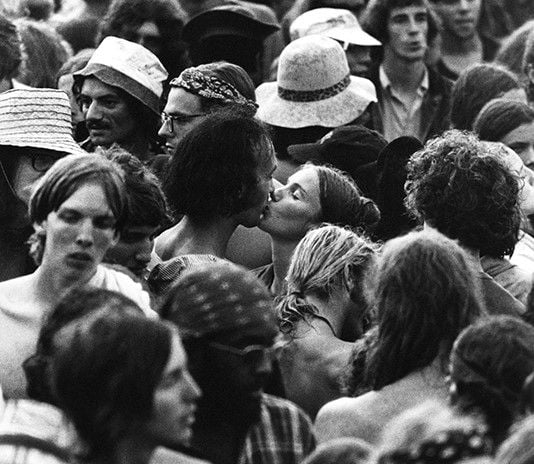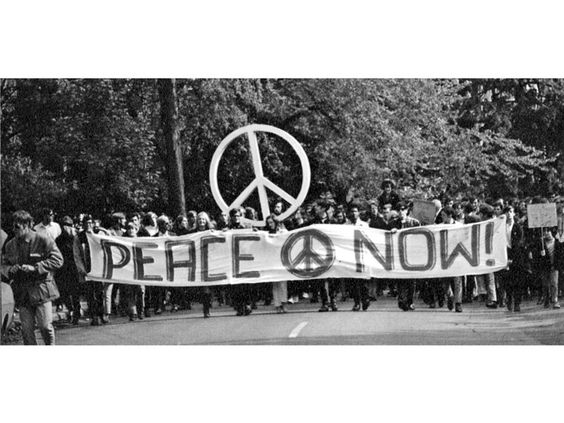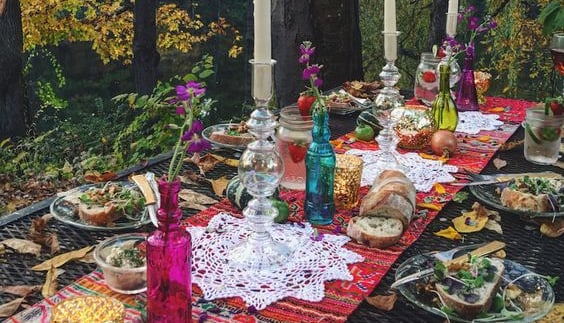Hippie Culture: The Eternal Call of Free Spirits
The hippie culture, a cultural phenomenon that emerged in the United States in the 1960s, continues to profoundly influence our art, music, fashion, and lifestyle to this day. It's more than just an external mode of expression; it's a philosophy of life that emphasizes individual freedom, peace, love, and a counter-mainstream value system. Today, we delve into the origins, core principles, and enduring impact of this unique culture in contemporary society.
NEXANET
12/4/20235 min lire


1.Origins of Hippie Culture
The roots of hippie culture trace back to the 1960s in America, an era filled with social upheaval and political unrest. This culture first sprouted in San Francisco's Haight-Ashbury district, quickly becoming a symbolic movement against mainstream society. At its heart, the hippie movement represented a rebellion against widespread social norms and consumerist culture, a direct expression of the younger generation's dissatisfaction with the status quo.
Against this backdrop, hippie culture evolved into a quest for freedom, peace, and love. It was not just part of the anti-war movement but also a reflection on broader social issues including racial discrimination, gender inequality, and environmental degradation. Hippies expressed their stance on these issues through their lifestyle, attire, and music, often symbolizing a challenge to traditional values and an emphasis on individual freedom.
A pivotal component of hippie culture was the 1967 "Summer of Love" in San Francisco, which drew thousands of young people. This event wasn't just a peak of hippie culture but also marked its significant influence on mainstream society. That summer, the Haight-Ashbury district was brimming with music, art, and free expression, attracting youths from across the nation.
Moreover, the Vietnam War greatly impacted the hippie movement. As the war persisted, more youths began questioning government decisions and expressed their anti-war sentiments through peaceful protests. The peace symbol in hippie culture became a significant icon of the era, representing not only anti-war sentiments but also a concern for broader social issues.
Driven by the hippie movement, music, art, and culture underwent massive transformations. From Grateful Dead, Jimi Hendrix, to Janis Joplin, many musicians became spokespeople for this culture, influencing an entire generation with their music and lifestyles. The impact of hippie culture extends far beyond, changing perceptions of life, love, and freedom, and leading a revolution in thought and culture.
2.Core Principles
Peace and Love: The cornerstone of hippie culture is the ethos of peace and love. Hippies disseminated this philosophy through music, art, and gatherings, with the most famous event being the 1969 Woodstock Music Festival.
Anti-Mainstream and Freedom: Hippies opposed materialism and traditional social norms, seeking spiritual freedom and individual expression.
Nature and Environmentalism: Advocating a return to nature, they respected and protected the environment, a principle still evident in today's environmental movements.


3.Fashion Style
Hippie culture has left an indelible mark on the world of fashion, reflecting the movement's core values of freedom, rebellion, and challenge to traditional norms. This unique style emerged from an unbounded pursuit of self-expression and creativity, pushing traditional aesthetic rules into a new realm.
Hippie fashion is renowned for its distinctive features and rich colors. Typical hippie attire includes loose-fitting clothes, ethnic patterns, and bold color combinations. These garments are often handmade or carefully selected to reflect the wearer's personality and pursuit of a free-spirited lifestyle. Popular items include Bohemian long skirts, colorful sunglasses, headscarves, and various handcrafted accessories, like beaded necklaces and bracelets.
Beyond clothing, hippies favored long hair and carefree hairstyles as a rebellion against societal norms of the time. Men typically sported long hair and beards, while women freely showcased their natural beauty. This mode of dress was not only an expression of personal freedom but also a challenge to societal traditions.
This style continues to influence fashion today, evident in both street fashion and high-end runway shows. It reminds us that fashion is not just external adornment, but also a manifestation of inner spirit and individuality.
4.Lifestyle
Hippies pursued a life free from materialistic constraints, focusing on a return to nature and spiritual exploration. They opposed the consumerism of industrialized society, emphasizing spiritual richness over material accumulation.
In hippie communities, people lived together, shared resources, and endeavored to create a society based on understanding, respect, and peace. These communities were often self-sufficient, with members collectively farming, making clothes and food, maintaining a simple and natural lifestyle. The essence of this lifestyle was harmonious coexistence with nature, respecting the Earth, and minimizing environmental damage.
Hippies also emphasized inner spiritual development and personal growth. They explored self-awareness through meditation, yoga, and artistic creation, seeking inner peace and awakening. They believed that such a lifestyle led to higher self-realization and spiritual freedom.
This approach to life remains relevant in modern society. Amidst today’s fast-paced, high-pressure environment, more people are revisiting hippie ideals, seeking a more balanced and harmonious way of life. Hippie culture reminds us that true happiness and fulfillment come from respecting nature, listening to our inner selves, and deeply understanding the world around us.
5.Cultural Impact
Although hippie culture peaked in the 1960s, its influence has not waned over time. Many of its core ideas and values, such as the pursuit of freedom, peace, and respect for nature, have permeated various aspects of modern society.
Catalyst for Environmental Movements The hippie movement’s emphasis on environmentalism and natural living remains vital today. Their advocacy for sustainable living and organic farming anticipated the current global dialogue on climate change and ecological protection. In fact, many modern environmental concepts and practices, like using renewable energy and reducing carbon footprints, can be traced back to the hippie culture’s deep concern for the environment.
Influence on Modern Art and Music Hippie culture has profoundly impacted modern art and music. Many artists and musicians continue to draw inspiration from hippie aesthetics and philosophy, creating works that reflect the spirit of freedom and anti-mainstream values. In pop music, films, visual arts, and even fashion design, the influence of hippie culture is evident.
Inspiration for Spiritual Exploration The spiritual exploration and pursuit of personal growth in hippie culture offer a way for modern individuals to seek inner peace. Concepts like yoga, meditation, and personal growth, while having ancient origins, were reinterpreted and popularized in hippie culture. These practices are now widely accepted as ways to cope with the stresses of modern life.
Inspiration for Social Movements The anti-mainstream spirit of the hippie movement also inspired subsequent social movements. From gender equality to civil rights, to today's social justice movements, many modern initiatives are inspired to varying degrees by hippie culture. The hippies’ commitment to freedom and equality provided inspiration and a model for later social reformers.
In summary, hippie culture is not just a historical period marker but a cultural legacy that continues to impact various aspects of our lives. It teaches us to view the world with an open mind, seek inner harmony, and courageously challenge the status quo for a better future.
6.Conclusion
Hippie culture is more than a hallmark of an era; it's an expression of a life attitude and philosophy. It teaches us to respect nature, pursue inner peace and love, and courageously challenge traditional norms. In our fast-paced, high-pressure modern life, hippie culture offers a different perspective, prompting us to reconsider how we harmoniously coexist with ourselves, others, and the environment. This enduring legacy continues to inspire and influence, reminding us of the importance of personal freedom, environmental stewardship, and the pursuit of a more balanced and meaningful life.


Form franceinter.fr
Form flickr.com
Suivez l'art que vous aimez.
SUPPORT
BOUTIQUE
COLLECTIONS
BOUCLES D'OREILLES
À PROPOS DE NEXANET
POLITIQUE DE CONFIDENTIALITÉ
Fabriqué avec 💖 à Londres. Merci de soutenir les petites entreprises.
